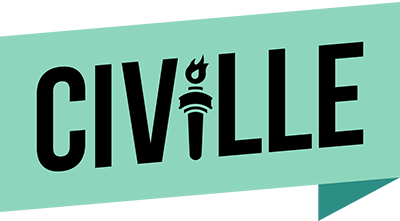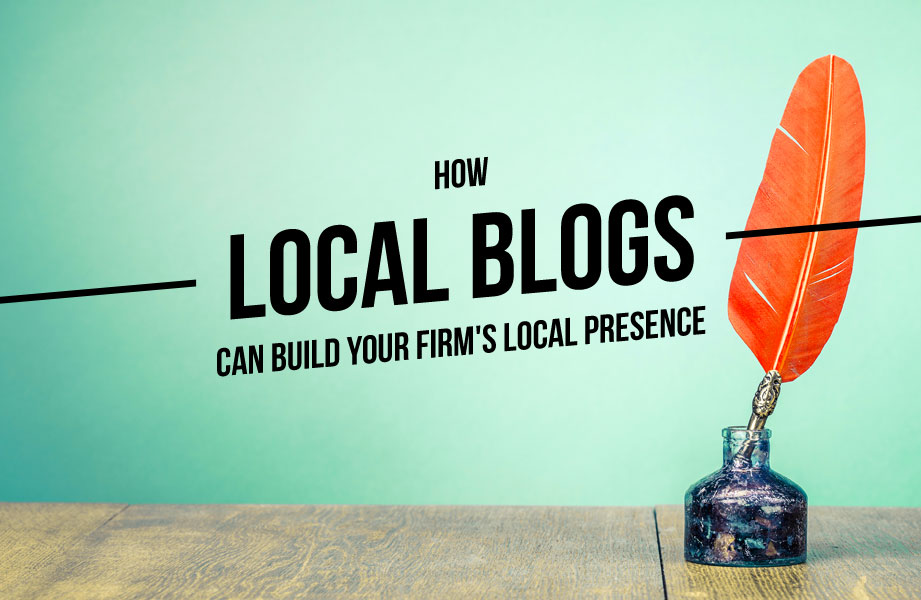
SEO can be difficult for many to explain or define. From a straightforward standpoint, the definition of SEO is, of course, Search Engine Optimization. However, given the many different ways someone can search in 2024, explaining how to go about SEO for a law firm is an involved process.
It should really start with goals. What market are you trying to reach? What messaging do you want when you do reach it? This can help define which of the many facets of SEO you want to explore for your law firm.
What is Local SEO?
As SEO starts to be defined, you’ll get into a more granular conversation. On-site SEO, off-site SEO, and more. And if you are a law firm that focuses on a local client base (or even if you don’t), there’s no doubt that local SEO is a big part of your strategy.
Local SEO is essentially everything that goes into getting your firm found in organic search locally. When someone searches for legal help within your practice areas, how do you get found in your town, city, county and state?
There is a lot that goes into it – so let’s get started.
1. Google Business Profile for Law Firms
The first and most important aspect of local SEO for a law firm has to start with the Google Business Profile. This is something that we focus on tirelessly at Civille. Getting the profile set up, verified, and optimized is one part. Then, adding value on a regular basis is the next. Getting found in the 3-pack for your service area is of vital importance to your firm if you are looking to gain local clients.
Setting up and Verifying your Google Business Profile
Before engaging with your Google Business Profile, the essential first step is to establish ownership or control. If someone within your firm already manages it, they can extend access to others through the “Business Profile Settings,” accessible via the three vertical dots in the upper right corner of the profile page. Within the “Managers” tab, owners retain the authority to add or remove members and facilitate ownership transfers.
In the absence of existing ownership, the responsibility falls on you to either claim or add your profile. Initiate this process while signed into Google from an account that guarantees ongoing access. For firm owners, opting for a personal account is prudent, ensuring continued access even in the face of potential changes such as alterations to business names or email addresses.
Download: How to Optimize Your Law Firm’s Google Business Profile
Commence the process by navigating to Google Maps. Once there, input your address into the search bar. Even if a profile page hasn’t been created for you, Google may have initiated one. If your business appears, you’ll find a “Claim this business” option; otherwise, you’ll encounter an “Add your business” option.

Afterward, follow on-screen prompts. While these may vary slightly for each business, ensure accuracy and have all necessary information on hand, including address, phone number, website address, and business name. Consider using a URL with UTM codes for precise tracking in Google Analytics for your website address.
While most aspects can be customized, tweaking certain items, especially in the “Business Information” section covered below, can potentially lead to verification issues.
The verification process for your firm’s Google Business Profile is guided by Google’s specific requirements. Sometimes, claiming or adding a page is straightforward, requiring no additional steps. More commonly, Google may necessitate sending a postcard to the physical address, containing a verification code essential for the process.
Google’s verification process may go beyond this, occasionally requesting photos of the building with signage and address or even a verification video showcasing the exterior. Verified pages may also lose their status, prompting a need for re-verification. This often occurs due to changes such as business name modifications or updates to critical information like the address or phone number. While re-verification is manageable, ensuring a meticulous initial setup minimizes the inconvenience associated with it.
What Information Should You Modify on Your Google Business Profile (GBP)?
A significant portion of this information is typically addressed during the initial setup process. However, if you’re claiming an existing page or have overlooked certain details, it’s crucial to pay close attention to these aspects. Let’s walk through them in the order they appear:
Editing the “About” Section on Your Firm’s GBP
The “About” section takes the lead in this lineup, with much of the setup likely completed initially.
- Business Name: This represents your firm’s name. While incorporating keywords can enhance your firm’s ranking, exercise caution, as excessive changes may lead to de-verification or account suspension.
- Business Category: Categorize your business, crucial for Google’s search result display. Choose from dropdown options, ensuring alignment with your firm’s offerings. Select a “Primary category” during this step.
- Description: A space to concisely describe your law firm in 750 characters or fewer. Ensure it encompasses all practice areas and remains engaging.
- Opening Date: Basic information indicating when your business started. You can set a future date if your firm is yet to open, with your listing appearing in searches 90 days before the specified opening date.
Editing the “Contact” Section on Your Firm’s GBP
Ensuring clients can easily reach you is a fundamental aspect of creating a Google Business Profile.
- Phone Number: While straightforward, this field may trigger re-verification requests. You can list more than one phone number, designating one as the primary.
- Website: Link to your website’s homepage, considering the inclusion of UTM codes for accurate tracking in Google Analytics.
Editing the “Location” Section on Your Firm’s GBP
An accurate address and map pin enhance discoverability, and specifying your service area aids potential clients.
- Business Location: Edit your address and adjust the map pin on Google Maps, with caution, as even minor address edits typically prompt re-verification.
- Service Area: Useful for businesses that travel, but applicable to all, list medium to large cities or communities likely to attract potential clients for your law firm.
Editing the “Hours” Section on Your Firm’s GBP
Maintaining up-to-date business hours is crucial, as clients often refer to this information before making contact.
- Hours: Keep your office hours current and edit as necessary.
- Holiday Hours: Add special hours for holidays, adjusting business hours to reflect closures. Google suggests upcoming holidays, but you can also add your own.
- Add More Hours: Consider additional hours for specific services, choosing from Google’s list. While many may not apply to law firms, options like “Online Service Hours” could be relevant.
Editing the “More” Section on Your Firm’s GBP
This section, subject to frequent updates by Google, may appear in searches alongside your result if deemed relevant.
- From the Business: Identify your business as Asian, Black, Latino, LGBTQ+, veteran, and/or women-owned.
- Accessibility: Add wheelchair accessibility features, such as elevator, restroom, and seating.
- Amenities: Include features like restrooms, with variations depending on your business type. Law firms commonly feature restrooms and gender-neutral facilities.
- Crowd: Toggle options for “LGBTQ+ friendly” and “Transgender safespace.”
- Planning: For law firms, typically a toggle for appointment requirements.
- Service Options: Specify online appointments, on-site services, and language assistance services for various languages, including American Sign Language and Spanish.
Should Your Law Firm Enhance its Google Business Profile (GBP) with Products?

While products may not be a conventional fit for most law firms, the section that showcases them beneath your business information is valuable real estate that should not be overlooked. A strategic use for this space could be highlighting your law firm’s practice areas. However, since a practice area isn’t a standard product, a slight adjustment in your approach is necessary.
Initiate the process by selecting “Add Product” from the top bar of options. Name your product after a practice area, and for the category, incorporate your primary city or your law firm’s name. If there isn’t a specific price associated with your services, leave the price field blank. Craft a compelling description for the practice area and include a URL, preferably linking directly to a relevant page on your website (don’t forget the UTM codes).
Finding the optimal image size can be tricky, as display formats vary. An image size of 720 x 486 generally ensures a pleasing appearance in most instances.
What Services Should You Include in Your Law Firm’s GBP?
Within each business category, editable in your “Business Settings,” you can add services. Google may suggest some, but you can also include custom services under each category. Click “Add more services” at the category’s bottom to input suggested or custom services, treating them akin to keywords that align with your business offerings.
After adding services, you can individually edit each. Adjust the service name, add a price (often unnecessary for law firm services), and crucially, provide a description. These descriptions, functioning much like keywords, can significantly boost your rankings, appearing with a “Provides” checkmark in relevant searches.
Optimizing Photos on Your Firm’s GBP
There are three essential photo types to consider: cover image, logo, and photo feed images.
- Cover Photo: Aim for a 16:9 aspect ratio, with 1024 x 575 dimensions. While Google suggests a storefront image, lawyer headshots often garner more engagement, giving a friendly face to your brand.
- Logo: A square image is ideal, with a recommended resolution of 720 x 720. Ensure your logo image size meets this resolution to prevent blurriness.
- Other Images: Google recommends 720 x 720 dimensions for additional images, though larger sizes are acceptable. Minimum dimensions are 250 x 250, and file sizes should range from 10 KB to 5 MB. You can also upload short videos, up to 30 seconds long and 75 MB in size.
Encourage routine updates to your Google Business Profile to maintain relevance and enhance your ranking.
Posting on Your Law Firm’s GBP: Is it Worth It?
Beyond the static information, your Google Business Profile includes a post feed resembling a social media feed, visible only on your profile. Regular posts can significantly improve your rank, engage your audience, and keep them informed.

There are three types of posts: Updates, Offers, and Events. Updates, likely the most common, provide information without expiration. Offers and Events have additional details, including start and end dates, images, and optional buttons with links.
Posting is straightforward, and each post allows up to 1,500 words, 10 images, and a button. Utilize UTM codes in links to track post success in Google Analytics.
Choosing the Right Image Size for GBP Post and Update Images
Selecting the correct image size can be challenging due to Google’s various crops for different displays. Aim for 720 x 540 dimensions, giving some padding to text elements, logos, and essential components. This ensures that the 9:5 crop maintains all crucial elements, as this is the crop most frequently seen.
Understanding Google’s cropping nuances is crucial. Images in the update feed display in a 9:5 ratio, while visitors clicking into them without selecting the link see larger versions at a 4:3 ratio. Working from the 4:3 ratio is advisable to prevent further cropping.
2. Optimize Your Website for Location
Optimizing your law firm website for your location is crucial to ensure maximum visibility in local search results and attract clients in your specific geographic area. Here are key strategies to enhance your website’s local optimization:
- Local Keywords: Incorporate location-specific keywords throughout your website content, including in titles, headings, meta descriptions, and naturally within the body text. This helps search engines understand the geographical focus of your legal services.
- Localized Content: Develop content that speaks to your local audience. Create blog posts, articles, or case studies that address legal issues specific to your location. Mention local landmarks, events, or community initiatives to strengthen the connection between your firm and the area you serve.
- Mobile Optimization: Many local searches occur on mobile devices. Ensure your website is mobile-friendly, offering a seamless experience for users on smartphones or tablets. Google prioritizes mobile-responsive sites in search results.
- Local Link Building: Build relationships with other local businesses, organizations, and legal entities. Acquire high-quality backlinks from local directories, chambers of commerce, or community websites. These links signal to search engines that your firm is a relevant and reputable local resource.
- Consistent NAP Information: Maintain consistent business information across your website, social media profiles, and online directories. Inconsistencies can confuse search engines and harm your local search rankings.
- Geotagging: Embed geotags in your website’s images to provide location signals to search engines. This is particularly useful for law firms with physical offices or those serving specific geographic regions.
By implementing these strategies, your law firm can optimize its website for local searches, making it more visible to potential clients in the area and strengthening its position in the local legal landscape.
3. Creating Local Content for Your Law Firm Website
Creating local content for your law firm website is a strategic approach to enhance your online presence and connect with the community. Tailoring your content to address local legal needs and concerns not only establishes your firm as a relevant authority but also improves your website’s visibility in local search results.

Start by integrating location-specific keywords naturally into your content, emphasizing the geographical areas you serve. Craft blog posts, articles, or FAQs that discuss legal topics relevant to your community, showcasing your expertise while addressing common local legal queries. Incorporate case studies or success stories related to clients from your area to build a sense of trust and community connection.
Utilize local events or legal changes as content opportunities, demonstrating your firm’s awareness of and engagement with local issues. Additionally, feature local landmarks, businesses, or community events in your content to further emphasize your commitment to the region.
Encourage client reviews and testimonials specific to your local clientele, adding credibility and authenticity to your website. By creating content that resonates with your local audience, you not only attract potential clients but also contribute to a stronger community presence for your law firm.
4. Local Law Firm Link Building
Local link building is a vital aspect of enhancing your law firm’s online visibility and establishing credibility within your community. Building strong, relevant links from local sources can significantly impact your website’s search engine rankings. Here’s how your law firm can effectively engage in local link building:
- Local Directories and Citations: Ensure your law firm is listed accurately on reputable local directories, such as chambers of commerce, legal associations, and business directories. Consistent citations across these platforms strengthen your local online presence.
- Community Engagement: Actively participate in local events, sponsorships, or community initiatives. When local organizations, businesses, or event organizers link to your firm’s website, it not only provides valuable backlinks but also establishes your firm as an integral part of the community.
- Collaborate with Local Businesses: Build relationships with other businesses in your area, especially those complementary to legal services. Establishing partnerships and exchanging relevant links can benefit both parties and contribute to a well-connected local network.
- Local Press and Media Outlets: Reach out to local newspapers, magazines, and online media outlets for opportunities to contribute legal insights or commentary on relevant issues. Media mentions and links from reputable local sources enhance your firm’s authority and visibility.
- Legal Directories and Associations: Ensure your law firm is listed on legal directories specific to your location. Associations, legal forums, or bar associations often provide opportunities for quality backlinks within the legal community.
By strategically pursuing local link building, your law firm can solidify its online presence, increase credibility, and improve search engine rankings in the specific geographic areas you serve. This not only attracts potential clients but also establishes your firm as a trusted local legal resource.
Read More: How Much Does Law Firm SEO Cost?
5. Local Law Firm Schema Markup
Implementing local legal schema markup on your law firm’s website is a powerful strategy to enhance its visibility in local search results. Schema markup provides search engines with structured data, helping them better understand your content and present it in a more informative manner. For law firms focusing on local clientele, incorporating local business schema can be particularly beneficial.
Include key details like your firm’s name, address, phone number, and operating hours within the schema markup. This information not only aids search engines in accurately indexing your site but also ensures that potential clients can easily access essential details about your practice.
Additionally, specify your law firm’s practice areas and include relevant local keywords. This enables search engines to associate your firm with specific legal services in your geographic location, increasing the likelihood of appearing in local search queries.
By incorporating local legal schema markup, your law firm communicates crucial information more effectively to search engines, ultimately improving its chances of being prominently featured in local search results. This can significantly boost your online visibility within your target community and attract clients seeking legal services in your specific location.
6. Law Firm Social Media
Executing quality social media strategies for your law firm can significantly enhance your online presence, engage with your target audience, and establish your firm as a credible legal resource. Start by identifying the platforms most relevant to your practice, such as LinkedIn, Instagram, or Facebook, and consistently share valuable legal insights, updates, and relevant news.
Maintain a professional and authoritative tone in your posts to showcase your legal expertise. Share informative articles, case studies, and success stories to position your firm as an industry authority. Encourage interaction by responding promptly to comments and inquiries, fostering a sense of community and trust.
Leverage visual content, including infographics or short videos, to make legal concepts more accessible and engaging for your audience. Showcase the human side of your firm by introducing team members or highlighting community involvement.
Strategically use hashtags related to legal topics or your locality to broaden your reach. Collaborate with influencers or other professionals in the legal field to amplify your firm’s reach and credibility. Consistency is key, so establish a content calendar and schedule regular posts to maintain an active and vibrant social media presence for your law firm.
Getting Local for Your Law Firm
In conclusion, prioritizing local SEO strategies is paramount for law firms seeking to enhance their online visibility, attract relevant clients, and establish a strong presence in their communities.
By optimizing Google Business Profiles, creating locally-focused website content, and engaging in effective link-building and social media practices, law firms can position themselves as authoritative figures within their geographical areas. Implementing schema markup for local legal services further refines online information, aiding search engines in understanding and promoting your firm to the right audience.
As legal services are often sought locally, a well-executed local SEO approach ensures that potential clients find your firm when they need it most. In the competitive legal landscape, a robust local SEO strategy not only boosts rankings but also builds trust, credibility, and a strong online reputation, contributing to sustained success for law firms in today’s digital age.
At Civille, we proudly offer clear deliverables for local SEO so that we can move the needle for our partner firms – and so they know what they are receiving on a monthly basis to prove the ROI. If you’d like to discuss a plan for your firm, get in touch with us today.





